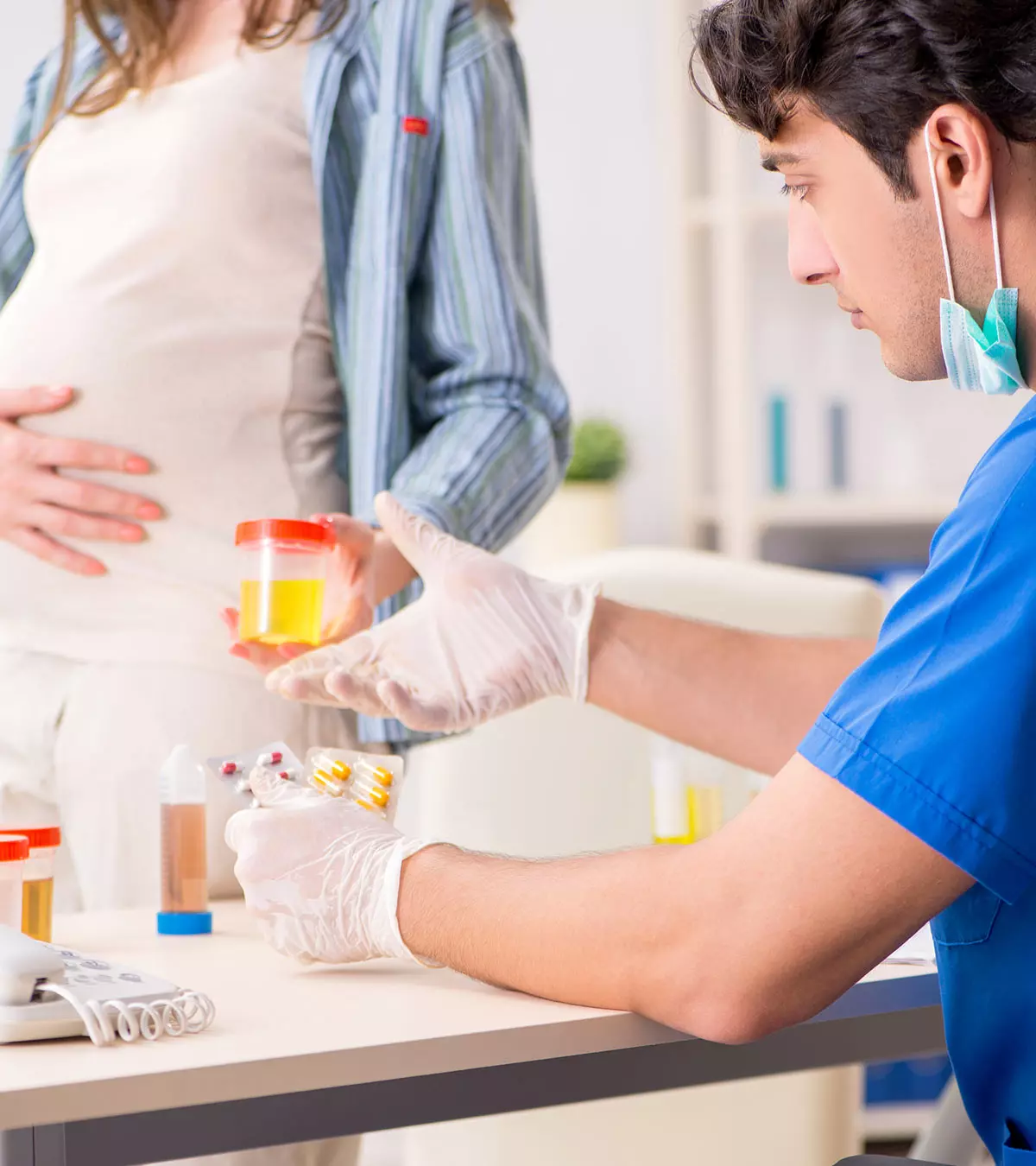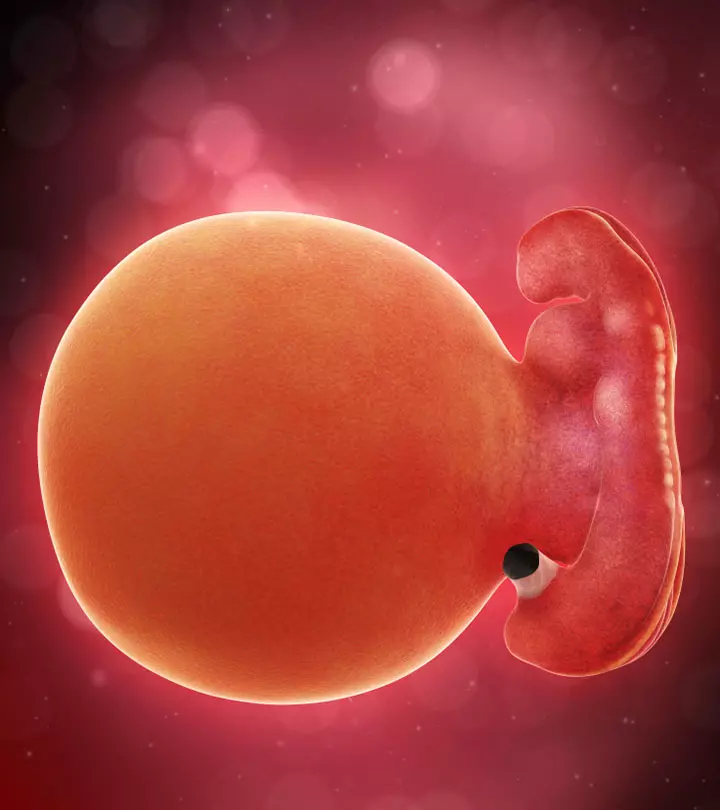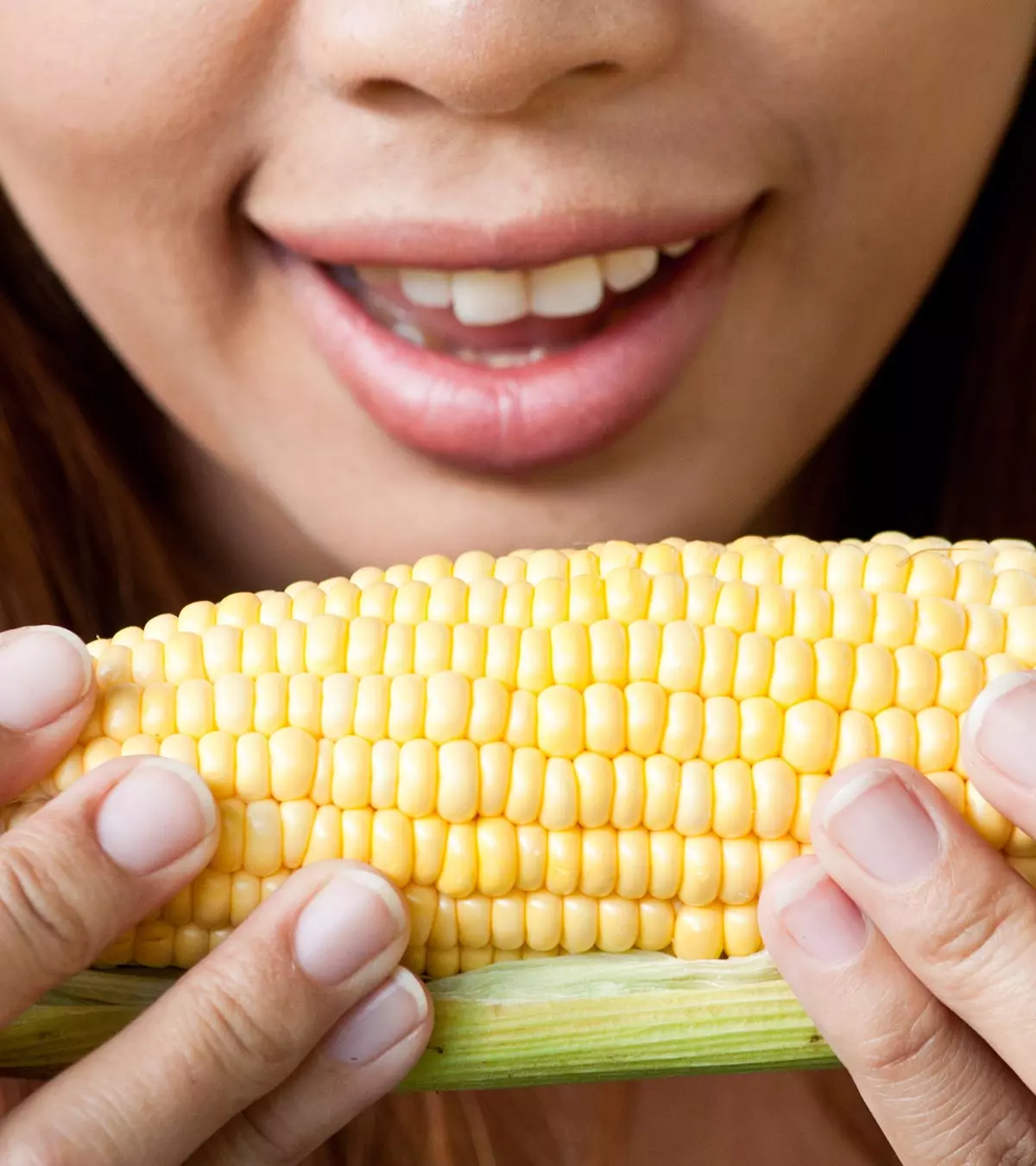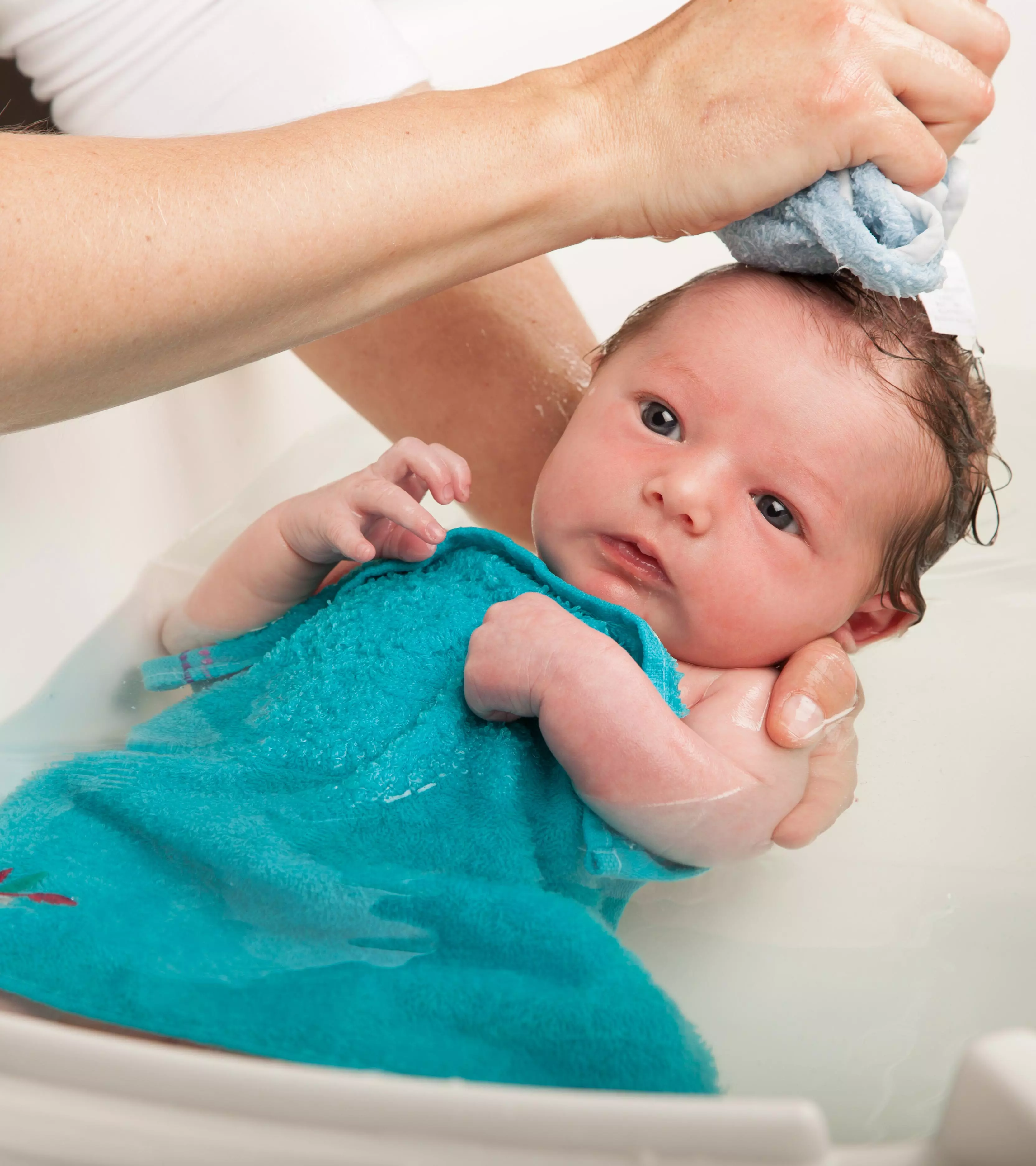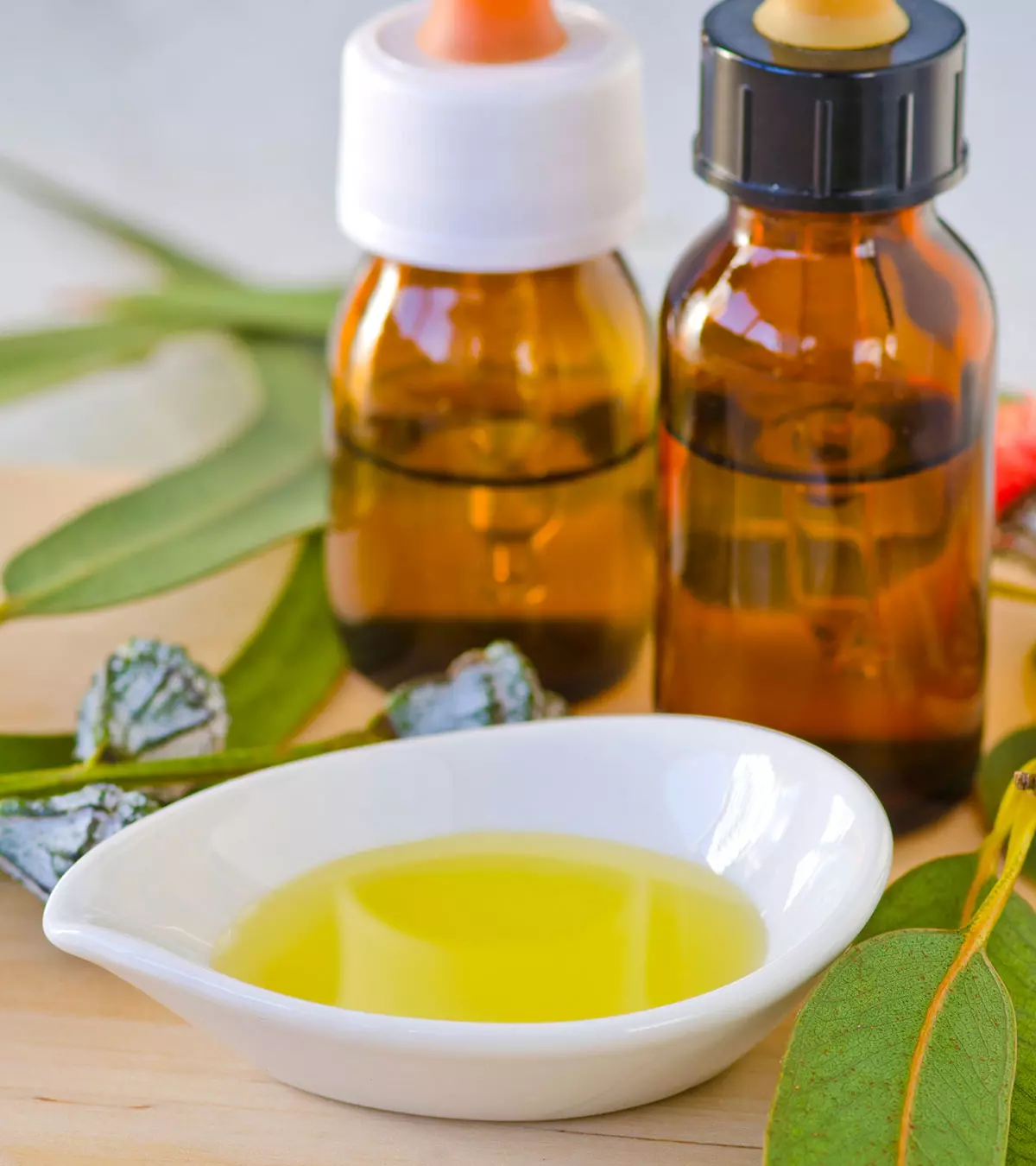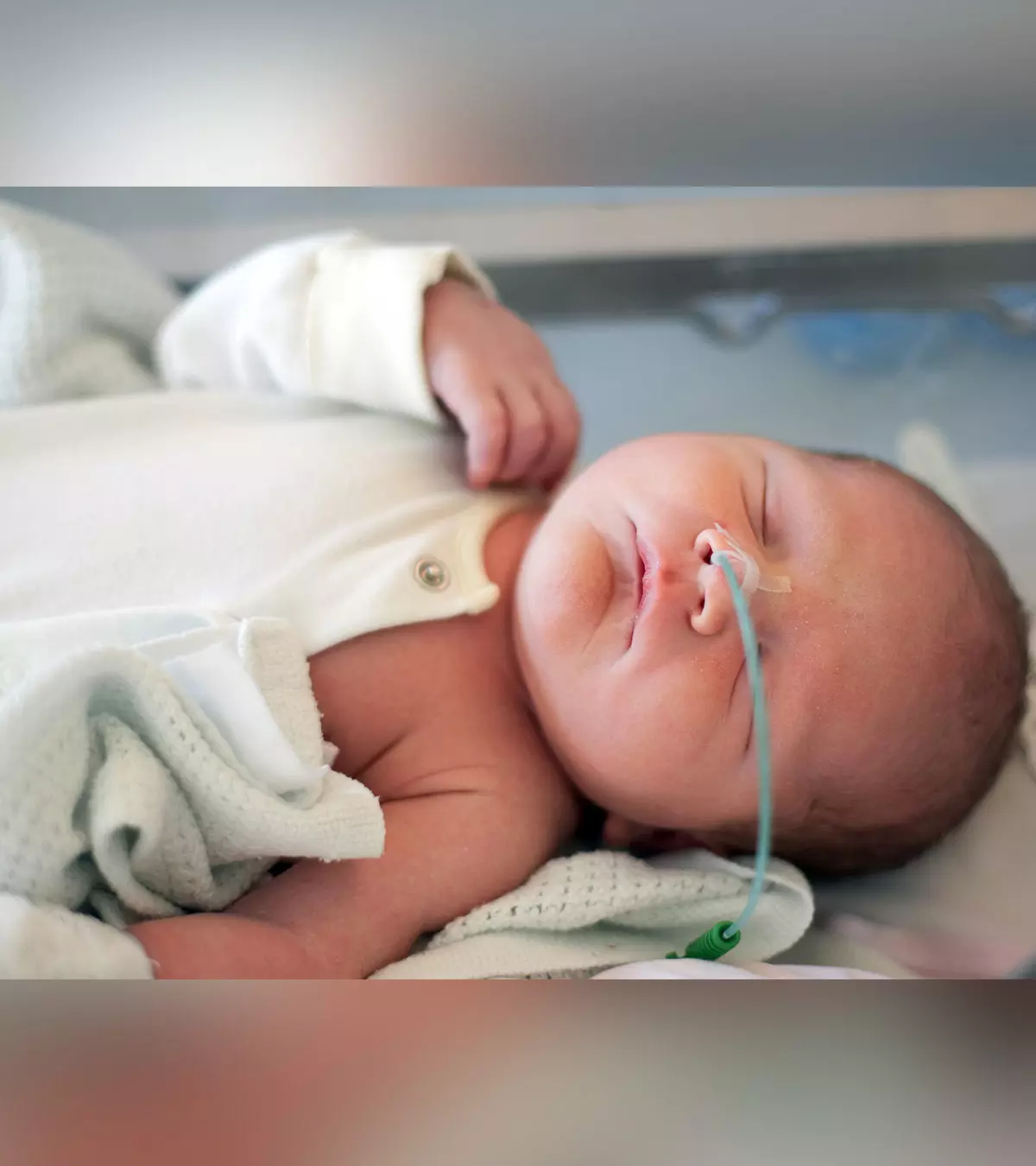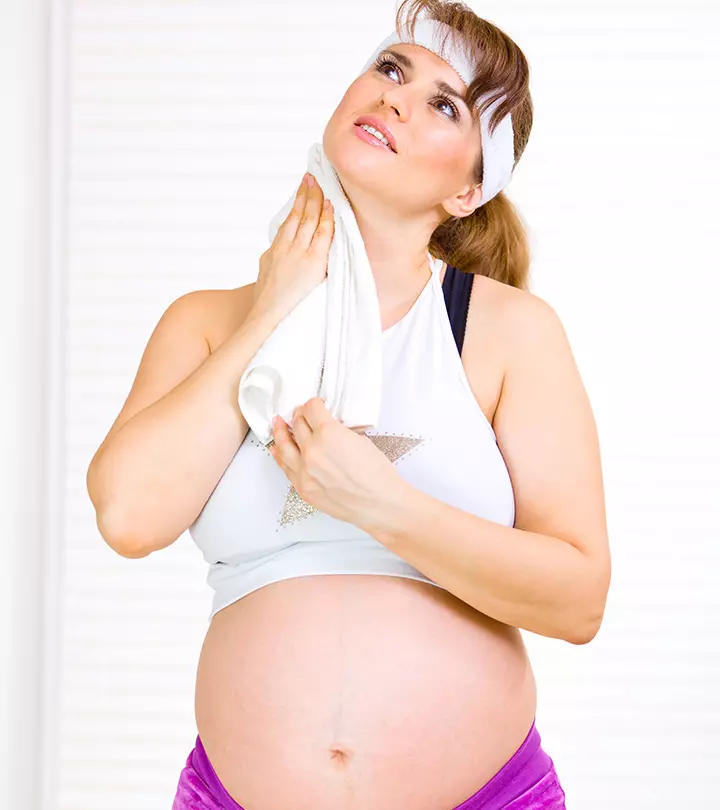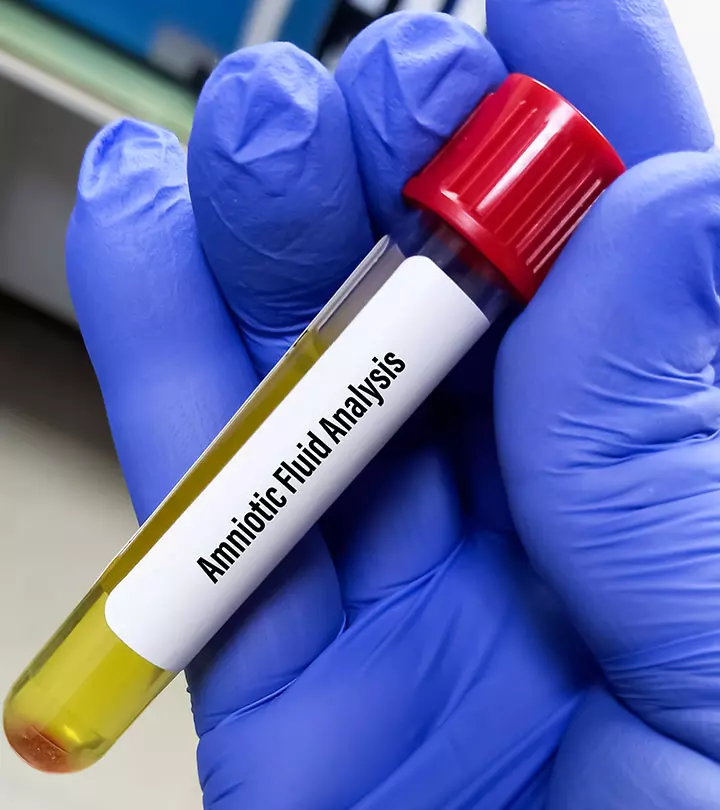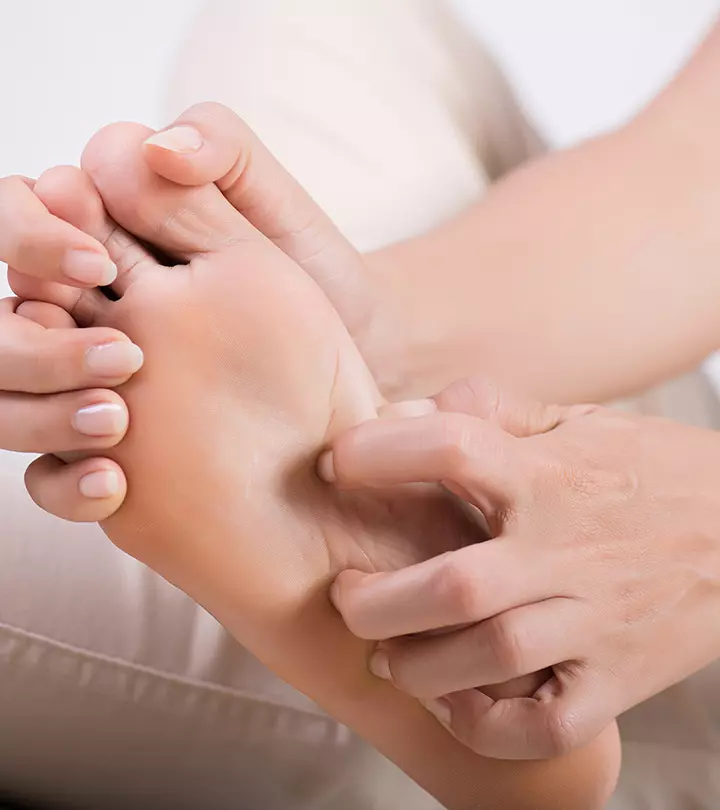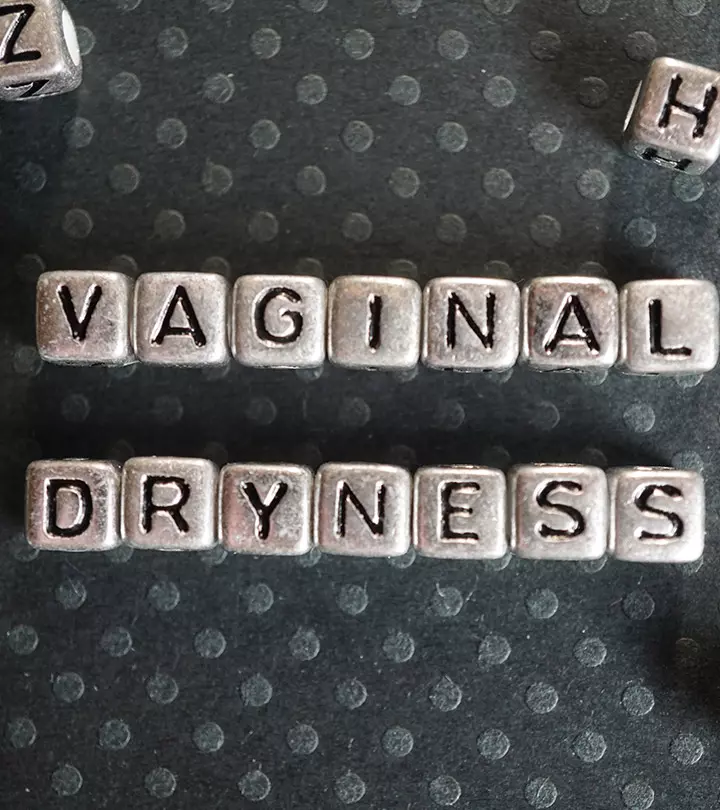
Image: iStock
As an expectant mother, you may experience vaginal dryness during pregnancy or postpartum. Typically, the vagina is an elastic and muscular canal with a soft and flexible lining (1). Its surface remains moist and lubricated with a thin layer of clear fluid produced in response to the estrogen hormone (2).
A drop in the estrogen hormone level may alter the functioning of the mucus membranes, resulting in vaginal dryness and itchiness (3). Moreover, vaginal dryness may make sexual intercourse uncomfortable.
Read on to understand the triggers, associated symptoms, and ways to manage vaginal dryness in pregnancy.
Key Pointers
- Vaginal dryness during pregnancy is temporary and treatable.
- Elevated estrogen levels, microbial infections, and certain medications are some of the causes of vaginal dryness during pregnancy.
- Pain during urination, frequent urge to pee, recurrent urinary tract infection (UTI), and uncomfortable sexual intercourse are common symptoms.
- Staying hydrated, using vaginal moisturizers and lubricants, and wearing loose cotton undergarments are a few ways to treat and even prevent vaginal dryness.
Is Vaginal Dryness Normal In Early Pregnancy?
Vaginal dryness may occur temporarily during pregnancy and postpartum, which is natural. This happens because the estrogen level drops.
Elevated estrogen levels during pregnancy naturally keep the vagina healthy with a slightly acidic (pH 4) mucus-rich fluid (1). The fluid provides lubrication and sensation during sexual intercourse. It also acts as an immunological and physical barrier that deters infection and helps healthy vaginal bacteria (natural flora) to thrive (4).
What Are The Symptoms Of Vaginal Dryness?

Other than general dryness and itchiness in the vaginal area, some symptoms of vaginal dryness include (5) (6)
- Discomfort while sitting, standing, or exercising
- Pain during urination
- Frequent urge to pee
- Uncomfortable sexual intercourse
- Recurrent urinary tract infection (UTI)
 Point to consider
Point to considerWhat Are The Causes Of Vaginal Dryness During Pregnancy?
Although vaginal dryness is a temporary condition during pregnancy, it may be triggered by several other factors. Some of the causes of vaginal dryness during pregnancy are (2) (6) (7)
- Stress: Pregnancy may bring about many bodily changes, causing stress. Stress directly impacts the hormonal system, inducing vaginal dryness.

- Lack of foreplay during sexual intercourse: Arousal is necessary for vaginal fluid secretion during sexual intercourse. Hence, vaginal dryness may persist in its absence.
- Smoking: Smoking may impact the blood flow to your vital organs, affecting the lubrication of your private parts. Smoking may also affect your sexual arousal, thereby impacting the secretion of vaginal fluid.
- Medication: Certain cold, allergy, depression medications and hormone therapy can cause vaginal dryness as a side effect.
- Microbial infections: Microbial colonization is possible during pregnancy, leading to vaginal dryness.
Besides pregnant women, those undergoing menopause, breastfeeding, or taking birth control pills may also experience vaginal dryness.
 Be watchful
Be watchfulWhat Are The Treatments For Vaginal Dryness During Pregnancy?

Vaginal dryness is treatable, and adhering to a certain lifestyle may help regain the moisture of the organ. Your gynecologist may ask you about your lifestyle to rule out other causes and suggest an appropriate treatment.
The following are some treatments that may help ease the symptoms of vaginal dryness (6) (8) (9):
- Use vaginal moisturizers and lubricants
- Use water-based lubricants during sexual intercourse
- Wear loose cotton undergarments
- Wash the vagina with clean running water and dab it with a clean cloth
- Apply vitamin E-enriched oil and coconut oil
- Drink plenty of water
- Practice yoga and mild exercises, such as pelvic floor exercises, for stress-related dryness
What Should You Avoid To Ease Vaginal Dryness During Pregnancy?
Some of the measures you should avoid during pregnancy to ease vaginal dryness are (5) (10)
- Hormonal therapy such as estradiol cream is not recommended for use in pregnancy. Beware of the risks of hormonal therapy and discuss them with your healthcare provider.
- Avoid using scented soaps, deodorants, and lotions around the vagina. These products may aggravate the irritation and further increase the dryness.

Should You Be Concerned About Vaginal Dryness During Pregnancy?
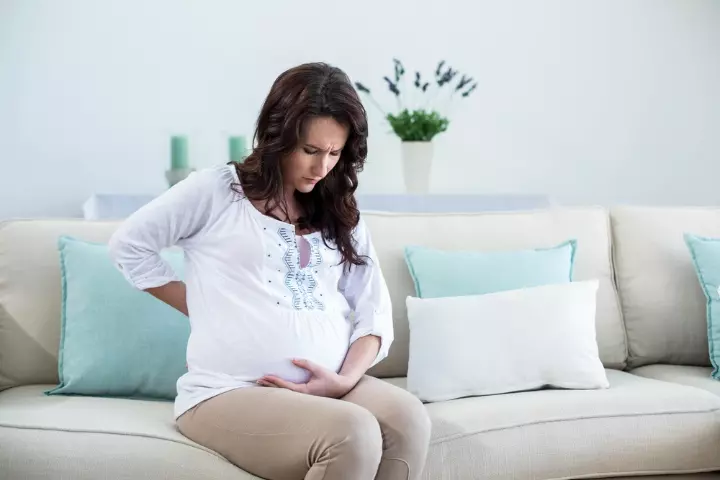
Vaginal dryness during pregnancy is temporary and not a cause for concern. However, sometimes, it can result from an underlying complication. Hence, consult a doctor in the following scenarios (6):
- It persists even after a few weeks of taking precautions
- It is affecting your daily life
- You notice bleeding or unusual vaginal discharge during pregnancy
Can You Prevent Vaginal Dryness By Drinking A Lot Of Water?
Although several factors dictate the dryness of the vagina, having sufficient water may help prevent vaginal dryness to some extent (11). According to the American College of Obstetricians and Gynecologists (ACOG), around eight to 12 glasses (64 to 96 ounces) of water are required every day during pregnancy (12). However, do not overdrink demineralized water, which may reduce your sodium and potassium levels.
Frequently Asked Questions
1. Can vaginal dryness during pregnancy indicate an infection?
Vaginal dryness may indicate vaginal infection or a UTI (8). A doctor will conduct a vaginal examination and pap test to check for an infection. If you have an infection, a course of antibiotics may help resolve it. Complete the entire course of antibiotics to avoid reoccurrence.
2. Can you take medications for vaginal dryness during pregnancy?
Vaginal dryness is a treatable condition. Once your doctor identifies the root cause of the problem, they may prescribe medications, vaginal moisturizers, or lubricants (13).
3. Can dehydration cause vaginal dryness?
Although not the sole cause, dehydration may contribute to dryness in the vaginal region during pregnancy. Further, you should maintain proper hydration levels to facilitate vaginal lubrication and prevent dryness and other vaginal problems (14).
4. Is pregnancy usually associated with vaginal dryness?
Vaginal dryness is common during pregnancy. However, most women also experience various other vaginal alterations, such as increased vaginal discharge and cervical mucus production (often making the vaginal area feel wet) when pregnant (15).
Vaginal dryness during pregnancy arising from estrogen drop and other external factors is common and manageable. Although the condition can be uncomfortable due to factors such as a burning sensation while peeing or pain during sexual intercourse, it is seldom a concern. So if you are experiencing vaginal dryness, drink plenty of water and use medications prescribed by your doctor. If vaginal dryness is stress-related, indulge in mild exercises like kegel exercises. However, look for the symptoms that may indicate comorbidity requiring medical attention and seek appropriate treatment.
Infographic: Treating Vaginal Dryness During Pregnancy
Vaginal dryness is a common concern for many expectant mothers. However, you can manage this condition with a few effective strategies after consulting your doctor. Skim through the infographic below for simple yet effective tips to address this pregnancy-related issue and ensure comfort during this important time.

Illustration: Momjunction Design Team
References
- Vulvovaginal Health.
https://pubmed.ncbi.nlm.nih.gov/31424731/ - Vaginal dryness.
https://medlineplus.gov/ency/article/000892.htm - Post-Pregnancy Vaginal Dryness.
https://www.yesyesyes.org/blogs/blog/post-pregnancy-vaginal-dryness - Emmanuel Amabebe and Dilly O C Anumba; (2018); The Vaginal Microenvironment: The Physiologic Role of Lactobacilli.
https://www.ncbi.nlm.nih.gov/pmc/articles/PMC6008313/ - Vaginal Dryness.
https://my.clevelandclinic.org/health/symptoms/21027-vaginal-dryness - Vaginal dryness.
https://www.nhs.uk/conditions/vaginal-dryness/ - Vaginal dryness.
https://www.womens-health-concern.org/wp-content/uploads/2023/11/25-WHC-FACTSHEET-VaginalDryness-OCT2023-B.pdf - Vaginitis.
https://my.clevelandclinic.org/health/diseases/9131-vaginitis - Improving Sexual Health: Vaginal Lubricants, Moisturizers, Dilators & Counseling.
https://www.rogelcancercenter.org/files/lubricants-moisturizers-counseling-guide.pdf - Estradiol Topical.
https://medlineplus.gov/druginfo/meds/a605041.html - Hydration for Vaginal Health.
https://www.stonybrookmedicine.edu/southbayobgyn/news/hydration - How much water should I drink during pregnancy?
https://www.acog.org/womens-health/experts-and-stories/ask-acog/how-much-water-should-i-drink-during-pregnancy - Vaginal Moisturizers and Lubricants.
https://siteman.wustl.edu/wp-content/uploads/2021/04/SCC_Pt-Ed_Vaginal-Dryness-Products_WEB.pdf - Vadym Goncharenko et al. (2019); Vaginal dryness: individualised patient profiles risks and mitigating measures
https://www.ncbi.nlm.nih.gov/pmc/articles/PMC6459457/ - Changes During Pregnancy: What’s Normal And What’s Not?
https://www.texaschildrens.org/pavilion-for-women
Community Experiences
Join the conversation and become a part of our nurturing community! Share your stories, experiences, and insights to connect with fellow parents.
Read full bio of Dr. Kritika Shashank Verma
Read full bio of Anshuman Mohapatra
Read full bio of Rebecca Malachi
Read full bio of Dr. Joyani Das












